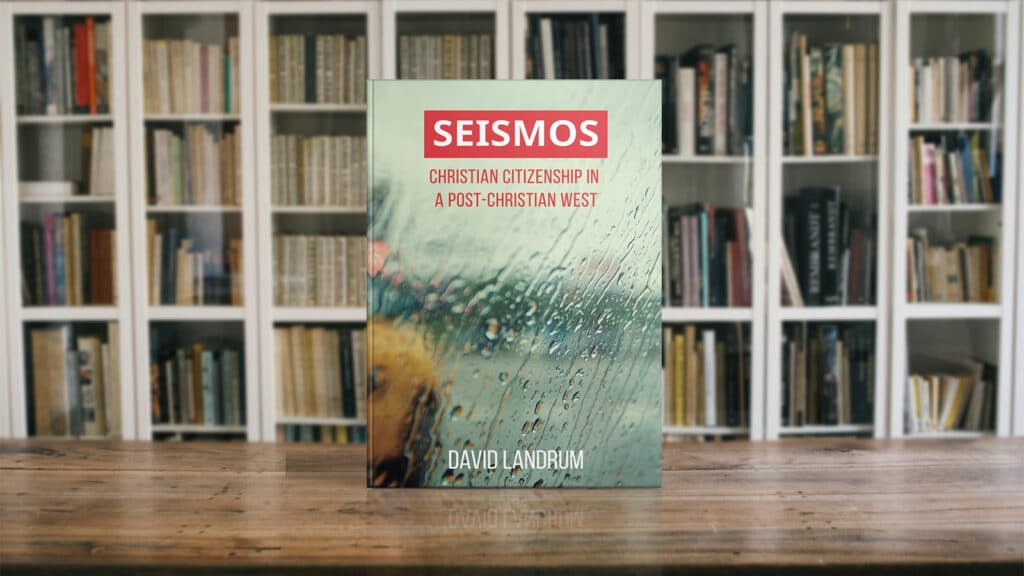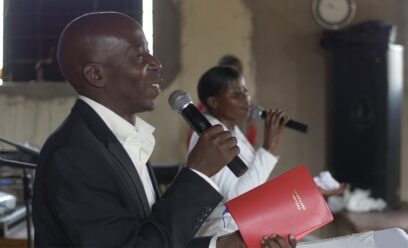Book review: Seismos: Christian Citizenship in a Post-Christian West
This book review was first published in our recent Social Issues Bulletin – Issue 58 which is available to download here.

Seismos: Christian Citizenship in a Post-Christian West
By David Landrum
Staten House, 2025 (407pp, £15 on Amazon)
Western culture has been in upheaval for the last several decades as the previously accepted moral foundations of our society have been steadily abandoned and Christianity has gone from being respected to being ridiculed. Life is not what it used to be. Christians now urgently need to think through what it means to live in a post-Christian culture where being a Christian is not only counter-cultural, but also costly. Fortunately, Dave Landrum has done that thinking for us.
Landrum brings decades of experience in Christian political advocacy in the UK to bear, as well as evident personal research and reflection, and wide reading around the subject. There’s a helpful summary of what the book seeks to achieve on page 360, where Landrum writes:
In this book I have attempted to provide: a sober analysis of the spiritual and ideological challenges that confront Western Christians; an honest appraisal of the trajectory for our citizenship; and a hopeful and practical strategy to weather the storm and to reach the shoreline.
This is an ambitious undertaking, but one that Landrum is well-equipped to attempt. The first chapter is called Cultural Climate Change. Here Landrum outlines the seismic shifts in culture over the last few decades. He writes: ‘After centuries of relative stability, a whole new weather pattern is unfolding in the West, a pattern that represents nothing less than a decisive break from Judeo-Christian morality.’ (p8). He then moves on in the next chapter to discuss citizenship, where he outlines six key principles for Christian engagement with citizenship, emerging largely from Romans 13.
Chapter three is on the secularising agenda. Here he addresses the myth of secular neutrality, and the myth of progress, as well as the whole woke agenda. There’s a helpful discussion of cultural Marxism and the LGBT+ movement with its attempts to redefine family and relationships. Also, a good discussion about just how damaging Diversity, Equity and Inclusion (DEI) programmes are.
Chapter four is about citizenship tests. Landrum believes that the church is being sifted through this cultural climate change. He outlines six ways that Christian individuals and organisations are responding to these challenges. These are: 1) Fold – acquiesce to the demands of culture which he describes as ‘a strategy for failure and treachery.’ 2) Fix – set up efforts to repair and reform society. 3) Fight – fight back with righteous indignation. 4) Flee – a natural response, but where to? 5) Fall Silent – keeping your head below the parapet. 6) Fear Not – here, while not dismissing the validity of fixing and fighting, Landrum tries to make the case for a more integrated approach to our cultural challenges.
Landrum’s cultural analysis is up-to-date and well-informed. There are multiple quotes from a wide range of Christian and non-Christian cultural commentators. Landrum makes use of contemporary examples of Christians in the West who have suffered in some way for their Christian faith. While Islam is mentioned at points, it does not get nearly as much attention as secularism. In my view, however, Islam is now the greater challenge to Western culture.
The final chapters are on the future of Christian citizenship, public leadership and a final chapter entitled ‘A Long Obedience.’ Landrum concludes with this:
To restate the triple message of this book: things are much worse that most people understand; things will get even worse before they get better; and things are never as bad as they seem with Jesus in the boat. (p361).
That about sums it up. The book is around 400 pages long, including nearly 30 pages of references, but with no index.
This book contains a combination of cultural analysis, theological analysis, Christian political theory, and practical ideas. All Christian leaders will find his insights and perspective helpful in navigating a rapidly changing culture and thinking through their own responses to these changes.




